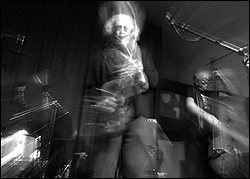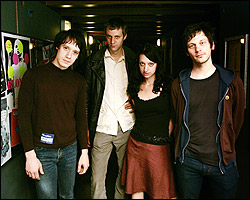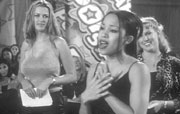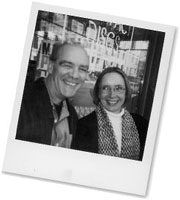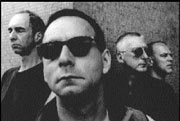For 20 years, the Seattle Festival of Improvised Music has been opening ears. What began as something fun and interesting to do one night in Belltown is now the longest-running annual showcase of nonidiomatic free improvisation, or music that has its root in the act of improvising. But never mind the semantics; people who play unscripted music are simply exploring outside the conventions of structure—any structure, even the structure of nonstructure.
It isn’t important that you call any of these explorations by the right name or that you properly respond to a particular shuffle of notes and rhythm. Unscripted music is essentially a live search for noises that sound good and feel electric, and while the SFIM didn’t necessarily begin as a public outreach project, this year’s organizers are intent on letting new listeners in. To that end, the scope has been broadened—or maybe the scope broadened all by itself. Either way, the scheduling of SFIM shows is as idiosyncratic as the music. Emerging improvisers with rock and roll backgrounds were programmed along with a rare appearance by festival founder and reed improviser Paul Hoskin. Performers from all over the world will arrive to play on the same bill with local improvisers whose last show might have been at Coffee Messiah. Wild young innovators will open for seasoned professionals. Free bopcore will follow extemporaneous throat-singing. Improv pop will collide with improv jazz. And you won’t be asked to understand any of it.
“IT’S OK TO not understand the music, because we don’t understand it, either,” say the members of Na, a local three-piece improv group. Answering as a unit via e-mail, Na categorically reject the notion that spontaneous, unscripted music is intimidating. Easy for them to say; although Noriaki Watanabe, Shinsuke Yamada, and Kazu Nomura formed Na in Seattle, they were all born in Japan, and to them, cacophony and chaotic collage are like a collective birthright. Their improv sounds like a neon carnival. Free dissonance abuts long periods of quiet minimalism, and vocal hijinks (on a song called “Moaning Call,” Kazu repeatedly calls out, “You can do it!” in Japanese) mix with toy instruments, computer-generated curveballs, and classical guitar.
On Friday night, Na will perform with some of the most venerated and experienced improv performers on the West Coast. The Bay Area’s What We Live are rooted in the jazz tradition; they were built from San Francisco’s jazz scene. Utilizing Lisle Ellis’ acoustic bass, the drums and percussion of Donald Robinson, and the tenor and soprano saxophones of Larry Ochs, What We Live’s performances yield inspired, swinging waves of avant-jazz fluidity.
This pairing is purposeful, and the show is symbolic not just of the festival but of the way that improv music is going. As local alto saxplayer and festival veteran Wally Shoup remembers it, the Seattle of 1985 had a rebellious air, “an openness to cross-pollination.” Sound familiar? By combining experience with exuberance, SFIM is harnessing all the rebellion and heterogeneity of the last 20 years and running with it.
“This word ‘improvisation’ might connect to jazz if you were born [in America]. We were born in a country where all the old things and new things are jumbled together crazily, both in a good way and a laughable way,” say Na. And then, “Kazu’s been listening to jazz, Shin’s been listening to experimental, and Noriaki’s been listening to Beethoven.”
This ought to sit well with What We Live’s bassist. “I’ve always found the most interesting musicians are the ones most open and curious about other ideas,” he says. “They may have their own particular approach but will also say they have many influences. The highest form of creativity transcends any stylistic differences.”
As Ellis also points out, “[Today’s] mainstream jazz players are mostly rehashing jazz’s past triumphs. The days of jazz as an ascendant style are over. Its time of innovation and change [has] passed, and it has evolved into a classic form. That is not to say that improvising musicians can’t learn from jazz, [but] I sense that at this moment in time and at this point in the development of the music, the question of jazz and its influence is a nonissue.”
Eschewing clunky genre names and outmoded models, Ellis sometimes refers to free improv in the same way that Shoup does, by calling it simply “this music.” This music is rebellious. It has learned the rules so that it can break them; it has studied jazz and then forgotten about it. This music is both so fragile that it might break at any moment and so strong that it is held together by sheer willpower alone. And this music exists to be experienced.
What We Live and Na play Gallery 1412 at 8 p.m. Fri., Feb. 11. $10–$20. Part of the Seattle Festival of Improvised Music. For more festival show details, see Seven Nights.
